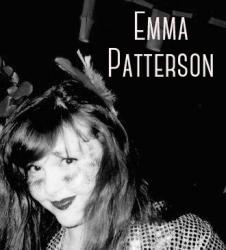Any production of Willy Russell’s Educating Rita suffers slightly from the weight of expectation, as most people have some familiarity with Lewis Gilbert’s Oscar nominated screen adaptation. Expectations and excitement were certainly high on an electrifying and completely sold-out opening night at The Lyric Theatre. Fortunately director Emma Jordan’s adaptation did not fail to entertain. A classic Pygmalion story, Educating Rita focuses entirely on the interactions between Frank, an erudite university professor and Rita, a disillusioned working-class hairdresser on a quest of self-improvement and discovery. As Rita enrols in an English Literature course at the Open University, she and Frank are thrown together on an odyssey of self-discovery.
Rita and Frank are from opposite ends of the social spectrum, yet find solace in each other as they’re both victims of alienation. Rita is besieged in a community where education is not a priority, and deviation from social strictures leads to ostracization. Frank, despite living in the world of privileged academia that Rita longs to be part of, has found himself dissatisfied and isolated. He struggles with his own failings as a poet and tries to find meaning at the bottom of a whiskey bottle. Frank describes his own occupational abilities as “appalling but good enough for his appalling students”, and is forced to take up tutoring with the Open University to fund his alcoholism. Rita acts as the antitheses to the stuffy and humourless world of academia, and Frank, who finds her verve, quick wit and eagerness to learn beguiling, begins to love teaching again. Together they embark on a journey of transition and personal development which ultimately irrevocably changes them both.
Kerri Quinn’s Rita and Michael James Ford’s Frank play off one another beautifully. Quinn depicts Rita as vulnerable and relatable, yet perfectly captures her character’s desire and determination to break free from her environment. Ford similarly represents Frank’s internal struggle with ease, and the divergence between his passion for romantic poetry and his alcohol-fuelled cynicism is tangible for the audience. Both actors delivered the fast-paced and quick-witted dialogue with perfect comic timing, as well as playing the more emotionally exposing scenes with ease. It’s easy for audiences to tire of just two characters over the course of a two hour play, but it’s a real testament to both actors that the audience remained fully invested until the very end.
The play is relocated from Liverpool 1980 to Belfast 1980, a reimagining which Jimmy Fay, (Executive Producer at The Lyric), stated was important so that “the issues the play deals with are not blurred by location”. Assistant Director Oisín Kelly worked in conjunction with Willy Russel to ensure the script was realigned effectively. It’s an effective transition in terms of comedic effect. The colloquialisms and salty vernacular of Belfast are perfectly captured in the script and delivered excellently by the cast, ensuring that the audience are kept laughing from the opening scene. The use of political context, however, isn’t delivered as effectively. By 1980 Belfast was engulfed in conflict and violence, with Hunger Strikes looming on the horizon. This context is made apparent though the use of radio excerpts, but it does seem like a fairly clichéd depiction of The Troubles. Politics was omnipresent in everyday life yet neither character really make mention of it. Perhaps the reimagined context could have been used more effectively for character development.
Attention to detail certainly wasn’t lacking in any other department. The action is set entirely in Frank’s study, which is designed beautifully by Stuart Marshall. Hundreds of books adorn Frank’s shelves in what begins as an intimidating and cavernous room for Rita, but eventually becomes her sanctuary from personal and societal conflict. The door into the study becomes a physical symbol of the difficulty both Rita and Frank face transcending social barriers; at the beginning Rita struggles to open it, and by the end it’s left wide open for both to walk through. Costume design, by Enda Kenny, is used cleverly, with Rita’s changing style used to reflect her internal change as she becomes more educated. Lighting too, from Sarah Jane Shields, is used to great comic effect, with the set in darkness, Frank’s empty whiskey bottles light up one by one. Even the programme is rich in detail, stylized on Rita’s lecture notes, and containing copies of some of the literary works mentioned in the dialogue.
Educating Rita is a multi-faceted morality tale which is acted superbly. A story of self-improvement, and a comment on the desolation of the working class, the idea that people are limited by their environment, not by their abilities, is at the forefront throughout, but the balance between comedy and tragedy is struck perfectly. It’s definitely worth watching, and makes for a truly enjoyable evening out.
Educating Rita is on at The Lyric until 5th March 2016.



